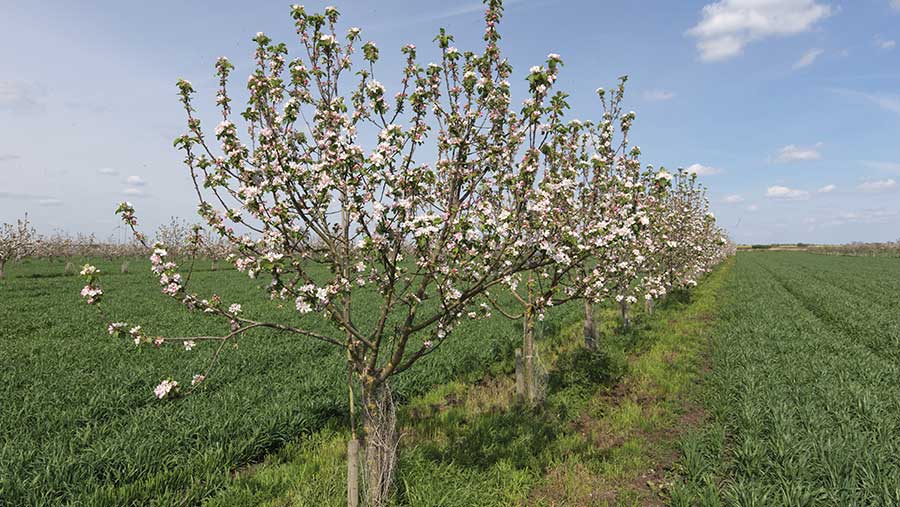Transition farmer update: Andy Bason advances agroforestry
 © Tim Scrivener
© Tim Scrivener There has been plenty of activity at Newhouse Farm in Hampshire over the past few months, as manager and Farmers Weekly Transition Farmer Andy Bason has pushed ahead with his plans for developing a sustainable business.
His new agroforestry venture is now under way, with some 400 trees planted in strips in a 10ha field, which is also home to an oilseed rape crop.
Unfortunately, the mix of apple, pear and walnut trees are currently receiving plenty of attention from the local deer population. “We can’t fence off the area, so we will have to accept some damage,” says Mr Bason. “We’re hoping we won’t lose too many of them.”
See also: How agroforestry venture adds value to natural capital
The trees have been planted in 4m-wide strips, with each strip 30m apart. The next part of the plan is to establish wildflowers in the strips, to add to their biodiversity value and provide habitat for pollinators, which will take place this autumn.
“The trees for this project have been paid for by the farm,” he explains. “It’s a new venture for us and I’m excited to see how it develops.”
Woodland creation
A planned 10ha woodland, which will be created on one of the farm’s less productive fields, will also start to take shape this autumn. A much bigger project, it involves planting 20,000 trees and will be funded by a Woodland Creation grant, secured from Defra.
As well as leaving a legacy for future generations, it will provide carbon capture and biodiversity benefits – adding potential income streams in very volatile times.
The business has also just launched as a Linking Environment and Farming (Leaf) demonstration farm, having been part of Leaf and Corteva’s Resilient and Ready programme for the past three years.
The launch took place at the end of May and Mr Bason is now committed to hosting six educational visits a year – something he enjoys enormously and is looking forward to.
“There is so much interest from the public in food production and the challenges that farmers are up against,” he points out. “It’s a tremendous opportunity to show what we are doing.”
Stewardship opportunities
He is also about to renew an expiring Mid-Tier Countryside Stewardship agreement, which finishes in December. With a Higher-Level agreement on another farm also coming to an end, he has taken the opportunity to bring them together in an enhanced agreement.
“I’ve had some help to design an ambitious scheme that brings in some new options, including rotational whole field ones, so that we maximise the environmental delivery while still producing nutritious food.”
